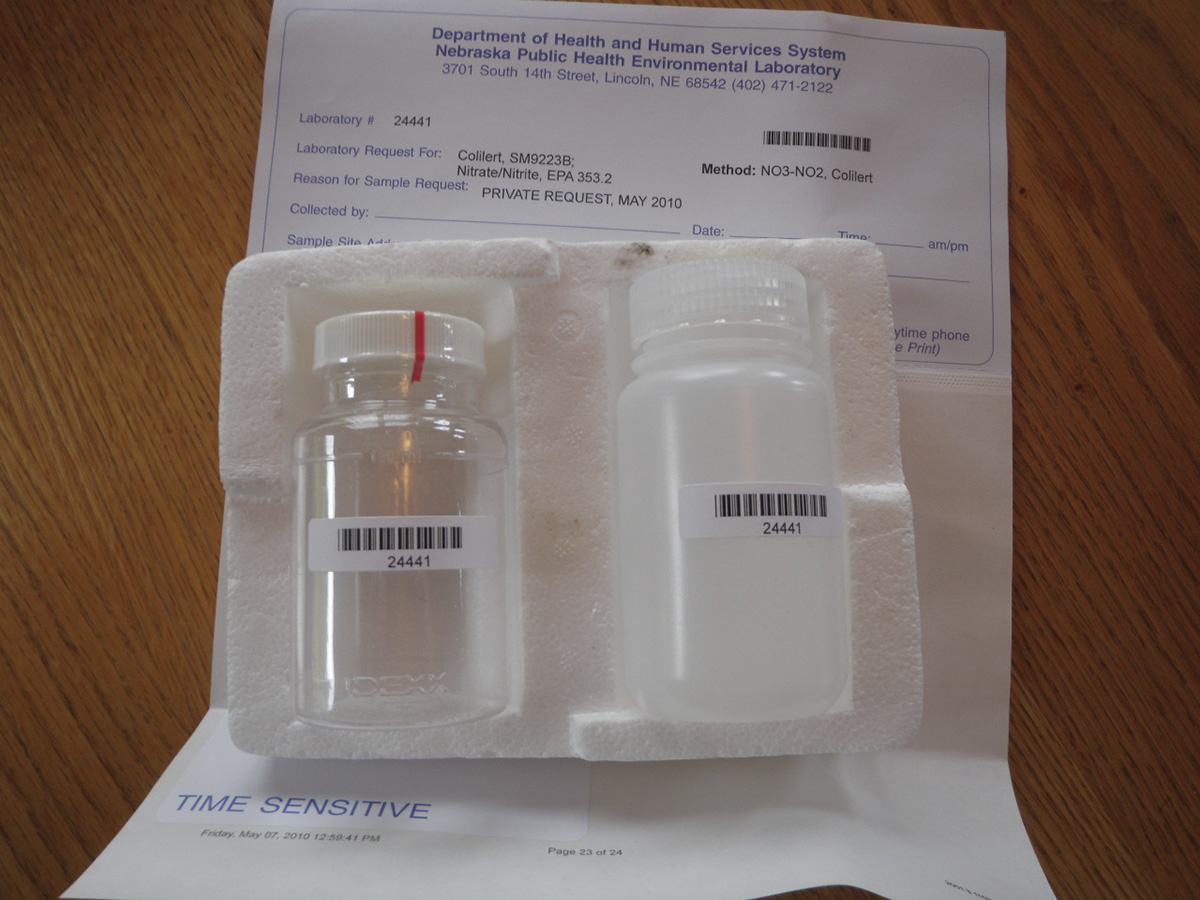
Meghan Sittler
Extension Educator
The arrival of warmer weather (albeit later than normal) in Nebraska means warming soil temperatures, rain storms, greening grass and more outside activity. Warming soil temperatures also signal one of the most opportune times to test your drinking water quality.
Private water supplies should be tested for total coliform bacteria and nitrates each year. Both substances can result in serious health complications. The only acceptable level of total coliform bacteria in your drinking water is no (zero) coliform bacteria. The maximum contaminant level (MCL) for nitrate is 10 milligrams per liter (mg/L) — which is sometimes stated as parts per million (ppm). As nitrate levels approach or pass that MCL, well owners should consider treatment options.
As a private well owner, you should also test your drinking water if:
• Your well has been inundated with storm water or other runoff.
• You have noticed any significant changes such as color, odor, taste or staining of household fixtures or linens.
• Cracks in the well casing or well cap, or other issues with your well itself have been observed.
• Land use around the well has changed.
• There has been a significant spill of chemicals within the area.
You may also have it tested if you hear from neighbors, local government or your water well professional that there are water quality issues in the area.
Water quality tests should only be done by the Department of Health & Human Services (DHHS) State Public Health Environmental Lab or labs certified by the Department of Health & Human Services. Information on obtaining sample kits, as well as a list of certified labs, can be found at
http://dhhs.ne.gov/publichealth.
If you have a newly constructed well or your well went through a recent repair, DHHS offers a free one-time water quality test. You can find more information on the free tests at http://dhhs.ne.gov/publichealth/Pages/enh_wwsindex.aspx or by visiting with your water well contractor.
Local Natural Resources Districts also often assist with drinking water tests. Your water well professional can also assist you with collecting the sample as well as periodic inspection of your well components.
Here are some other ideas to help you protect your drinking water:
• Take time to walk around your wellhead and make sure nothing on the wellhead is damaged or potential contaminant sources are too close to your wellhead.
• Make sure you are performing regular maintenance on your onsite wastewater system and following all operating guidelines.
Knowledge of your drinking water and the critical water resources across our state is essential to help protect your health — and the quality and quantity of water available for people, agriculture, wildlife and the environment.
FOR MORE INFORMATION
UNL’s Water website at http://water.unl.edu has many resources, including:
• NebGuide: “Drinking Water: Testing for Quality” (G907)
• NebGuide: “Protecting Private Drinking Water Supplies: Water Well Location, Construction, Condition and Management” (G2050)
• NebGuide: “Protecting Private Drinking Water Supplies: Household Wastewater (Sewage) Treatment System Management” (G2051)
• Article about Water Quality with links to NebGuides about various contaminants